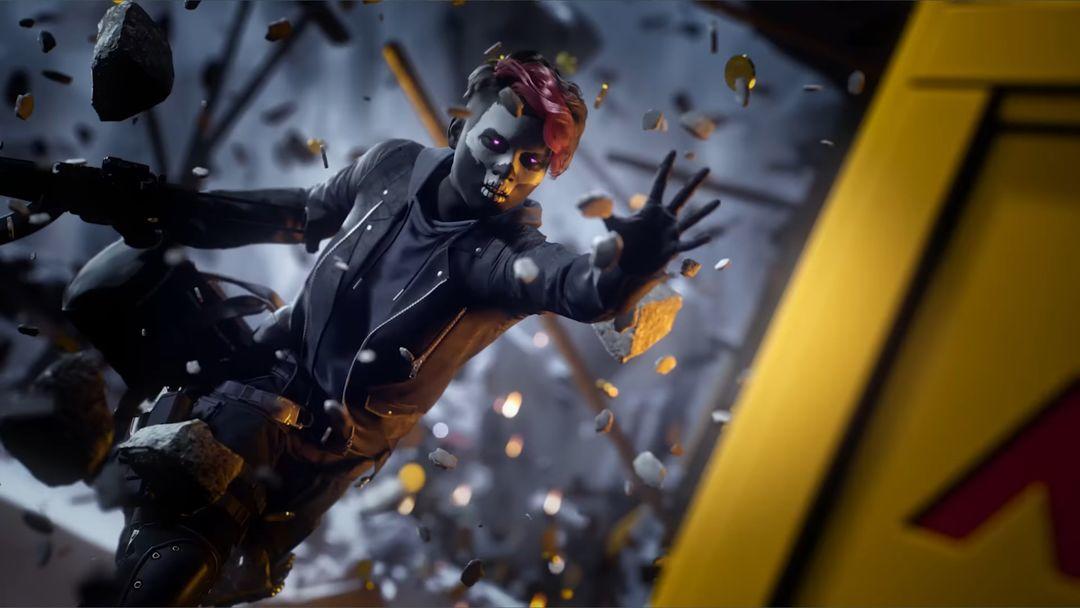Ubisoft’s experiment with NFTs in Ghost Recon Breakpoint was a catastrophic failure
3K View2024-01-13
There’s part of me that wonders whether the tech industry’s sudden and extreme fascination with generative AI wasn’t at least partly fueled by a desire to move on from its sudden and extreme fascination with NFTs. These blockchain-based digital objects failed so spectacularly that you could hardly blame someone for being extremely embarrassed by them and eager to move on, and nowhere is that more apparent than it is with Ubisoft’s Quartz and Ghost Recon Breakpoint.
Over the holiday break, I had an itch to fire Breakpoint back up. After a troubled launch, the game has changed massively to react to the negative feedback it received from fans. There are NPC squadmates now, a truckload of new campaign content, and a mode that completely ditches the Destiny-style gear level system.

Will AI ruin video games? What you need to know about the rise of AI
https://m.taptap.io/post/6800123
The changes were so comprehensive, far-reaching, and additive that over the course of about eighteen months, it looked like Ubisoft had actually managed to salvage Breakpoint and win back the love of longtime series fans. That is, until the end of 2021, when the company announced its new Quartz initiative.
Quartz is—or maybe was—Ubisoft’s bespoke system for incorporating collectible NFTs into its games, and the transformed Ghost Recon: Breakpoint was pressed into service as its proving ground. In an update released in December 2021, Ghost Recon: Breakpoint began rewarding players with in-game NFT items called Digits for various gameplay milestones. Players who had at least one hundred close-quarters combat kills, for example, received a unique P320 pistol, while having a long-distance kill of four hundred meters or more would grant a special Scorpio sniper rifle.
There were a total of seven types of Breakpoint Digits to collect, and each one was limited to a specific number of individual items. Only two thousand individual M4A1 Tactical rifle Digits were distributed, and only two hundred of the P320, the Wolf Chest Rig, and the Scorpio sniper rifle Digits. While you could equip and use these items in Breakpoint, the idea was that once you had one, its rarity would drive up its value on the connected NFT marketplaces, Objkt and Rarible.
That’s not what happened.
Objkt’s Quartz marketplace lists twenty-seven total transactions for Digits in the past two years, and none of these transactions has involved more than the current equivalent of $23 USD, a price that hasn’t been helped by the fact that the tez cryptocurrency Ubisoft chose to tie its digital assets to has lost about seventy-five percent of its value since the announcement of Quartz Digits in 2021.

I wasted several hours trying in vain to connect my dummy crypto wallet to Rarible in order to get an accurate idea of how much activity was going on with Quartz on that marketplace, but it was to no avail. Clicking on any Digit listing on Rarible sent me to an error screen (although this was not the case with other NFT collections I browsed on Rarible). Maybe I need a wallet specifically set up for the Tezos blockchain, but in theory at least, that shouldn’t be necessary: The whole point of a blockchain is that it’s a publicly visible ledger. In any case, Rarible’s Quartz listings seem to be either disabled or broken, and that may help explain why none of the Digits listed on Rarible have any bids whatsoever.
It may also be because nobody wants them—at least, not enough to go through the ridiculous process of interacting with the Tezos blockchain and the unreliable sites where Digits can be traded.
Of course, Ubisoft isn’t alone here: Just about every company and individual who bet big on NFTs has been left with nothing. Some analysis has indicated that about ninety-five percent of NFT collections are now completely worthless. Ubisoft minted the last Ghost Recon Breakpoint Digit in March 2022, and so far the publisher has yet to reveal any plans to continue the project with any other games.

That makes it weird and a little eerie to see Quartz still displayed prominently on Ghost Recon Breakpoint’s Ubisoft Connect page, where I go every time I want to launch the game. There’s this strange purple monument to failure staring at me whenever I click on the game, and I marvel that nobody has gotten around to replacing the announcement for a failed feature that isn’t even usable for the small number of people who interacted with it to begin with.
It’s as if it was completely forgotten and cast aside, perhaps as its architects suddenly noticed and became fascinated with a new shiny technological bauble. As it happens, Ubisoft has moved on to generative AI, and unveiled a ChatGPT-style tool that it says will “aid in scriptwriting.” I suppose we’ll see.
TapTap looks better
on the app





